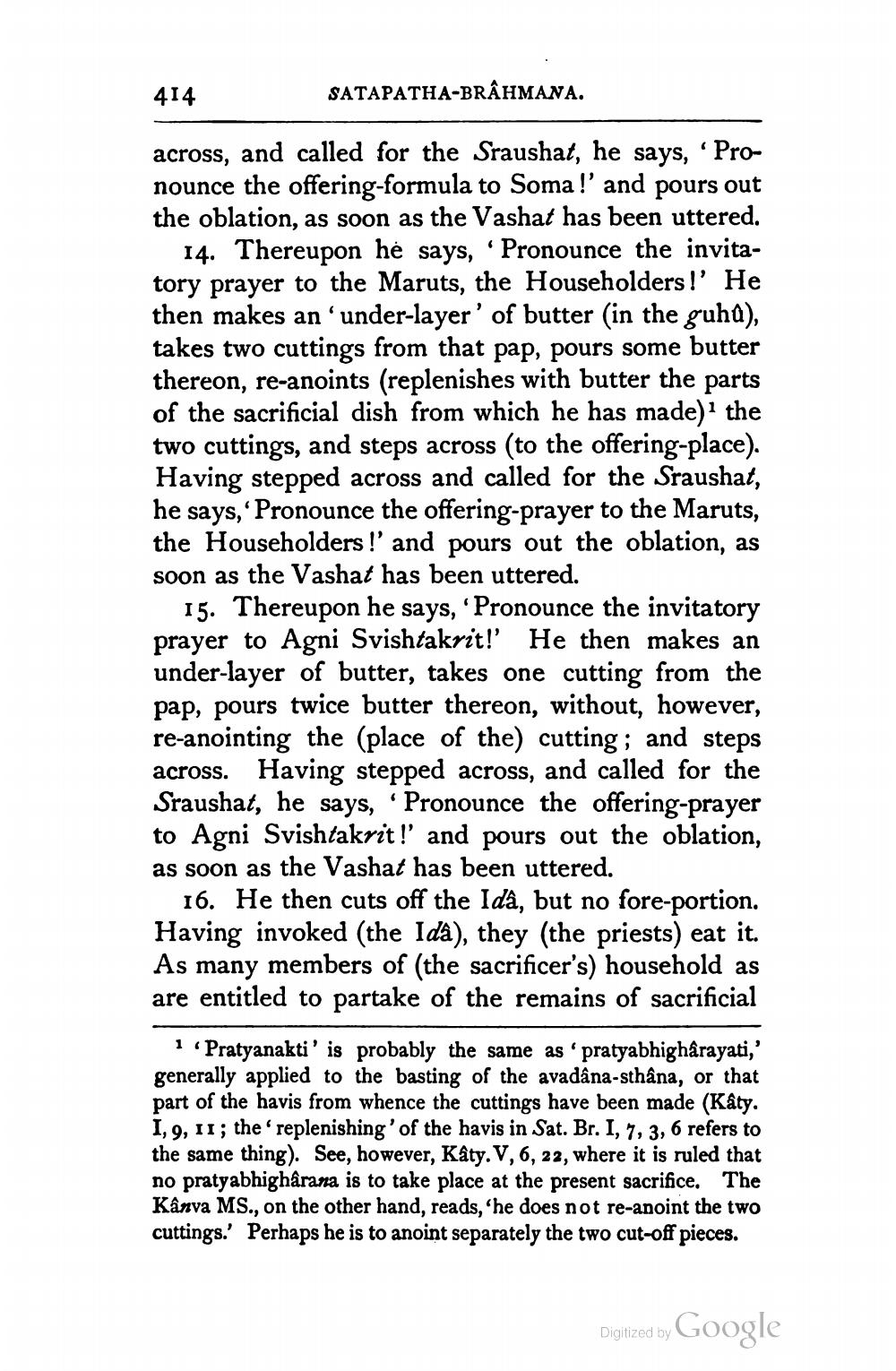________________
414
SATAPATHA-BRAHMANA.
across, and called for the Sraushat, he says, Pronounce the offering-formula to Soma !' and pours out the oblation, as soon as the Vashat has been uttered.
14. Thereupon he says, 'Pronounce the invitatory prayer to the Maruts, the Householders!' He then makes an under-layer' of butter (in the guha), takes two cuttings from that pap, pours some butter thereon, re-anoints (replenishes with butter the parts of the sacrificial dish from which he has made) the two cuttings, and steps across (to the offering-place). Having stepped across and called for the Sraushat, he says, Pronounce the offering-prayer to the Maruts, the Householders !' and pours out the oblation, as soon as the Vashat has been uttered.
15. Thereupon he says, 'Pronounce the invitatory prayer to Agni Svishtakrit!' He then makes an under-layer of butter, takes one cutting from the pap, pours twice butter thereon, without, however, re-anointing the (place of the) cutting; and steps across. Having stepped across, and called for the Sraushat, he says, Pronounce the offering-prayer to Agni Svishtakrit!' and pours out the oblation, as soon as the Vashat has been uttered.
16. He then cuts off the Idâ, but no fore-portion. Having invoked (the Idå), they (the priests) eat it. As many members of the sacrificer's) household as are entitled to partake of the remains of sacrificial
1.Pratyanakti' is probably the same as 'pratyabhighârayati,' generally applied to the basting of the avadana-sthâna, or that part of the havis from whence the cuttings have been made (Káty. I, 9, 11; the replenishing' of the havis in Sat. Br. I, 7, 3, 6 refers to the same thing). See, however, Kâty.V, 6, 22, where it is ruled that no pratyabhighârana is to take place at the present sacrifice. The Kanva MS., on the other hand, reads, he does not re-anoint the two cuttings.' Perhaps he is to anoint separately the two cut-off pieces.
Digitized by Google




